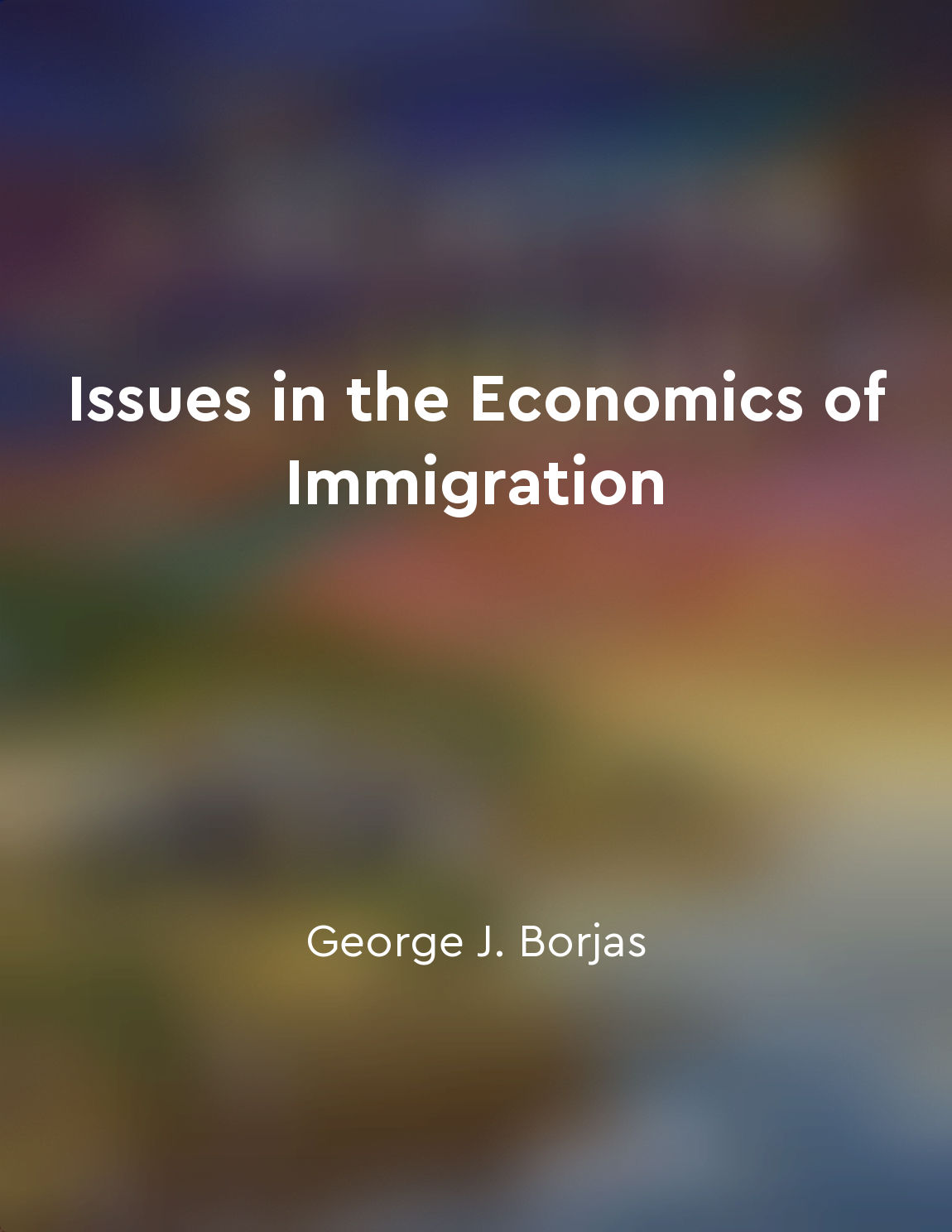Immigration policies can shape the economic outcomes of immigrants from "summary" of Issues in the Economics of Immigration by George J. Borjas
Immigration policies play a crucial role in determining the economic outcomes of immigrants in a host country. These policies can have a significant impact on immigrants' ability to find suitable employment, earn a decent income, and access social services. For example, restrictive immigration policies may limit immigrants' opportunities to work legally, leading them to resort to informal, low-paying jobs. On the other hand, more open immigration policies can enable immigrants to secure better-paying jobs that match their skills and qualifications. Moreover, immigration policies can also affect immigrants' access to education and training opportunities. For instance, policies that restrict immigrants' access to higher education or vocational training can hinder their ability to improve their skills and qualifications, thereby limiting their earning potential. Conversely, policies that facilitate immigrants' access to education and training can enhance their prospects for economic success in the host country. In addition, immigration policies can influence immigrants' ability to integrate into the host society and access social services. For example, policies that promote social inclusion and provide support for language acquisition and cultural assimilation can help immigrants adapt to their new environment and participate more fully in the local economy. Conversely, policies that create barriers to social integration, such as restrictions on access to healthcare or social assistance, can exacerbate immigrants' economic challenges and lead to social exclusion.- Immigration policies have a direct impact on the economic outcomes of immigrants in the host country. By shaping immigrants' access to employment, education, training, and social services, these policies can either facilitate or hinder their economic integration and success. Therefore, policymakers must carefully consider the implications of immigration policies on immigrants' economic well-being and strive to create a conducive environment that enables immigrants to thrive and contribute to the host society.


